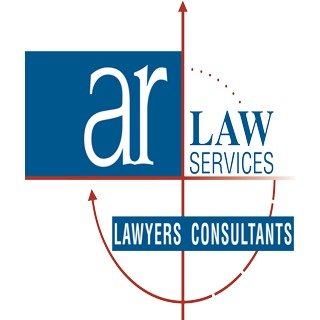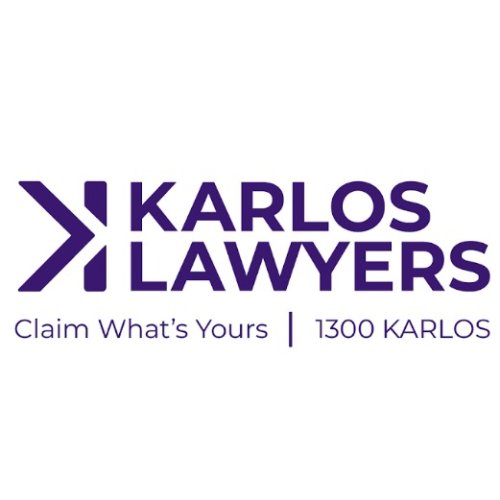Best Labor Law Lawyers in Melbourne
Share your needs with us, get contacted by law firms.
Free. Takes 2 min.
List of the best lawyers in Melbourne, Australia
About Labor Law in Melbourne, Australia
Labor Law, also known as Employment Law, in Melbourne, Australia, is a branch of law that addresses the rules and regulations governing workplace relationships. It entails both individual and collective aspects covering areas like contracts of employment, unfair dismissal, industrial dispute resolution, health and safety regulations, anti-discrimination rules, and workers' compensation. As labor legislation is largely federal in Australia, Melbourne follows the Fair Work Act 2009 and other commonwealth laws, with additional local provisions.
Why You May Need a Lawyer
There are multiple situations where you might require the services of a lawyer experienced in Labor Law. These scenarios may include workplace harassment or discrimination, wrongful termination, wage disputes, or issues related to occupational safety. Lawyers can guide you in understanding your rights, represent your case if needed, and also help in drafting and negotiating employment contracts and agreements. If you are an employer, you may require legal help in ensuring compliance with labor regulations, handling employee disputes, or dealing with trade unions and industrial actions.
Local Laws Overview
In Melbourne, Victoria, the local laws relevant to Labor Law primarily fall under the Fair Work Act 2009, which regulates wages, overtime, breaks, working hours, annual leave, collective bargaining, and dispute resolution. The Work Health and Safety Act 2011 governs workplace health and safety regulations. Additionally, there are laws prohibiting workplace discrimination, such as the Equal Opportunity Act 2010, and the Occupational Health and Safety Act 2004 for managing risks to health and safety.
Frequently Asked Questions
What are my rights if I feel I've been unfairly dismissed?
If you believe you've been unfairly terminated, you have the right to apply to the Fair Work Commission to deal with your dismissal under the Fair Work Act 2009. It is recommended to seek legal advice before proceeding.
Can employers deduct wages without consulting employees?
No, employers cannot make unauthorized deductions from an employee's wages. Deductions can only be made in specific circumstances and upon written agreement from the employee, as per the Fair Work Act.
What are the rules concerning maximum weekly hours?
Under normal circumstances, the maximum weekly hours are 38 hours for a full-time employee. However, additional hours may be worked if it's considered reasonable.
What can I do if I'm facing discrimination at the workplace?
If you're facing discrimination at work, first report it to your supervisor or HR department. If the issue persists, it's advisable to seek legal advice - you may have rights under the Equal Opportunity Act 2010 and the Fair Work Act 2009.
Should I get a lawyer to review my employment contract?
Having your employment contract reviewed by a labor lawyer can help you ensure your rights are adequately protected and that you understand the terms and obligations in the agreement. It is highly recommended.
Additional Resources
There are several resources available for those seeking help in matters of Labor Law. The Fair Work Ombudsman provides free advice and education about Australia’s workplace rights and obligations. The Victorian Equal Opportunity & Human Rights Commission can help with cases regarding discrimination. The Victorian WorkCover Authority, also known as WorkSafe Victoria, offers assistance for workplace safety and workers’ compensation issues.
Next Steps
If you believe you need legal assistance, the first course of action is to consult a lawyer who specializes in Labor Law. They can provide you with advice tailored to your particular needs. Simultaneously, report any workplace issues to the concerned authorities in your organization. It is also encouraged to keep a record of any incidents or evidence that may strengthen your case.
Lawzana helps you find the best lawyers and law firms in Melbourne through a curated and pre-screened list of qualified legal professionals. Our platform offers rankings and detailed profiles of attorneys and law firms, allowing you to compare based on practice areas, including Labor Law, experience, and client feedback.
Each profile includes a description of the firm's areas of practice, client reviews, team members and partners, year of establishment, spoken languages, office locations, contact information, social media presence, and any published articles or resources. Most firms on our platform speak English and are experienced in both local and international legal matters.
Get a quote from top-rated law firms in Melbourne, Australia — quickly, securely, and without unnecessary hassle.
Disclaimer:
The information provided on this page is for general informational purposes only and does not constitute legal advice. While we strive to ensure the accuracy and relevance of the content, legal information may change over time, and interpretations of the law can vary. You should always consult with a qualified legal professional for advice specific to your situation.
We disclaim all liability for actions taken or not taken based on the content of this page. If you believe any information is incorrect or outdated, please contact us, and we will review and update it where appropriate.
















